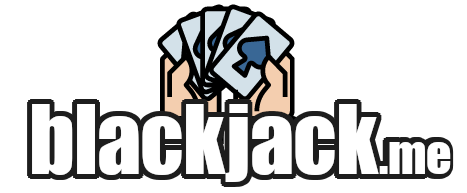The Ethics of Card Marking in Blackjack
Blackjack, a beloved casino game that combines skill and luck, has been captivating players for centuries. However, like any competitive activity, there are always individuals seeking ways to gain an unfair advantage. One such method is card marking, a practice involving subtle alterations to playing cards to gain information about their value. Although card marking is considered cheating and strictly prohibited in casinos, it is important to explore the ethical implications surrounding this practice. This article delves into the ethics of card marking in blackjack, examining arguments from different perspectives to understand the complexities involved.
| 21+ | Terms & Conditions Apply | NJ Residents Only | ||
 | $25 FREE on Signup 100% up to $1.000 on First Deposit Hotspot Leaderboard | Visit Casino |

The Unfairness of Card Marking in Blackjack
Card marking fundamentally undermines the integrity of the game, creating an unfair advantage for those who employ this technique. In blackjack, the house already has a slight statistical advantage over players. However, card marking tips the scales further in favor of the player, distorting the game’s level playing field. This unfairness compromises the core principles of fair competition and diminishes the experience for all participants.
When card markers can identify high-value cards and adjust their betting strategies accordingly, they gain an advantage over other players who are playing by the rules. This disparity not only tilts the odds in favor of that player but also disrupts the balance that casinos strive to maintain to ensure a fair gaming environment. In doing so, card marking undermines the essence of blackjack as a game of skill and chance, turning it into an exercise in deception and unfair advantage.
Card Marking in Blackjack – Violation of Trust and Rules
Card marking is a clear violation of the trust between players, dealers, and the casino. When individuals engage in card marking, they intentionally deceive others by manipulating the game’s outcome. This deceit erodes the trust that is essential for the smooth functioning of any gambling establishment.
In blackjack, players rely on the integrity of the game, trusting that the cards are shuffled and dealt fairly. Card marking disrupts this trust, introducing an element of doubt and suspicion. Other players may question the validity of their losses or become skeptical of their opponents’ wins. This erodes the social fabric of the game, where camaraderie and healthy competition are vital elements.
Moreover, card marking directly violates the rules to blackjack established by the casino to ensure fair play and maintain the integrity of the game. Casinos invest significant resources in surveillance and security measures to detect and prevent cheating. When individuals engage in card marking, they not only undermine these efforts but also breach the rules that govern the game. This disruption in the established rules and regulations undermines the equilibrium that allows for a fair and enjoyable experience for everyone involved.
Impact on Casinos and Players
Card marking not only harms the casino’s reputation but also affects the overall gaming experience for legitimate players. When card markers succeed, casinos lose money, which can impact their operations and lead to reduced payouts or increased house edges. This, in turn, may deter regular players who seek a fair game with a reasonable chance of winning.
Casinos thrive on providing an environment where players feel safe and confident that they have a fair opportunity to win. The presence of card marking disrupts this environment, creating an atmosphere of suspicion and distrust. Other players may become wary of the game’s integrity and question whether they stand a fair chance of winning or if their losses are a result of cheating.
Furthermore, the negative impact of card marking extends beyond the casino floor. News of cheating incidents can quickly spread through word of mouth or social media, tarnishing the reputation of the establishment. A casino known for allowing card marking or failing to detect it can face severe consequences, including loss of customers, damage to its brand image, and potential legal repercussions.
Legal and Moral Implications
Card marking is not only ethically wrong but also illegal in most jurisdictions. Cheating in any form is generally regarded as an immoral act, violating the principles of fairness and integrity that underpin our societal values. The laws governing gambling aim to protect the interests of both the players and the casino industry.
Engaging in card marking not only disregards these laws but also compromises the trust and integrity of the entire gambling community. It is important to recognize that the consequences of cheating extend beyond the individual cheater. When card marking goes undetected, it creates an unfair advantage that can affect the outcomes and experiences of multiple players at the table.
Moral considerations also come into play. Fairness and integrity are values that extend beyond the realm of gambling. Cheating in any context undermines the principles that promote a just and equitable society. By engaging in card marking, individuals not only cheat their way to an unfair advantage but also undermine the very foundations of fairness and trust that are essential in any social or competitive setting.
However, it’s important to note that card marking is generally considered unethical and illegal. While it is possible to present arguments that might highlight potential benefits or advantages, it’s important to maintain an objective perspective and acknowledge the broader consensus against card marking.
Potential Arguments – Strategy Enhancement
Proponents of card marking may argue that it enhances the strategic aspect of the game, providing players with an opportunity to exercise their skills and intelligence. They claim that card marking allows players to gain a deeper understanding of the game by tracking the distribution of high-value cards. This knowledge, they argue, empowers players to make informed decisions about their betting strategies, potentially increasing their chances of winning.
Advocates may argue that card marking adds an element of excitement and complexity to the game. By employing card marking techniques, players must develop intricate systems and methods to discreetly mark and interpret the cards. This level of sophistication, they argue, elevates the game beyond mere chance and encourages players to engage in strategic thinking.
However, it is essential to note that these arguments are presented from the perspective of individuals who advocate for card marking, rather than representing the consensus viewpoint. The overwhelming consensus among casino operators, regulators, and players is that card marking is a form of cheating and a violation of the rules and principles that uphold fair play.
Final Thoughts
While proponents of card marking may argue that it enhances strategic thinking and adds excitement to the game, it is crucial to recognize that these viewpoints are in the minority. The prevailing consensus among casinos, players, and regulatory bodies is that card marking is an unethical and illegal practice that compromises the fairness, integrity, and trust fundamental to blackjack and the gambling industry as a whole. To maintain the spirit of fair competition and ensure an enjoyable experience for all participants, it remains imperative to condemn and discourage any form of cheating, including card marking.
| 21+ | Terms & Conditions Apply | NJ Residents Only | ||
 | $25 FREE on Signup 100% up to $1.000 on First Deposit Hotspot Leaderboard | Visit Casino |

